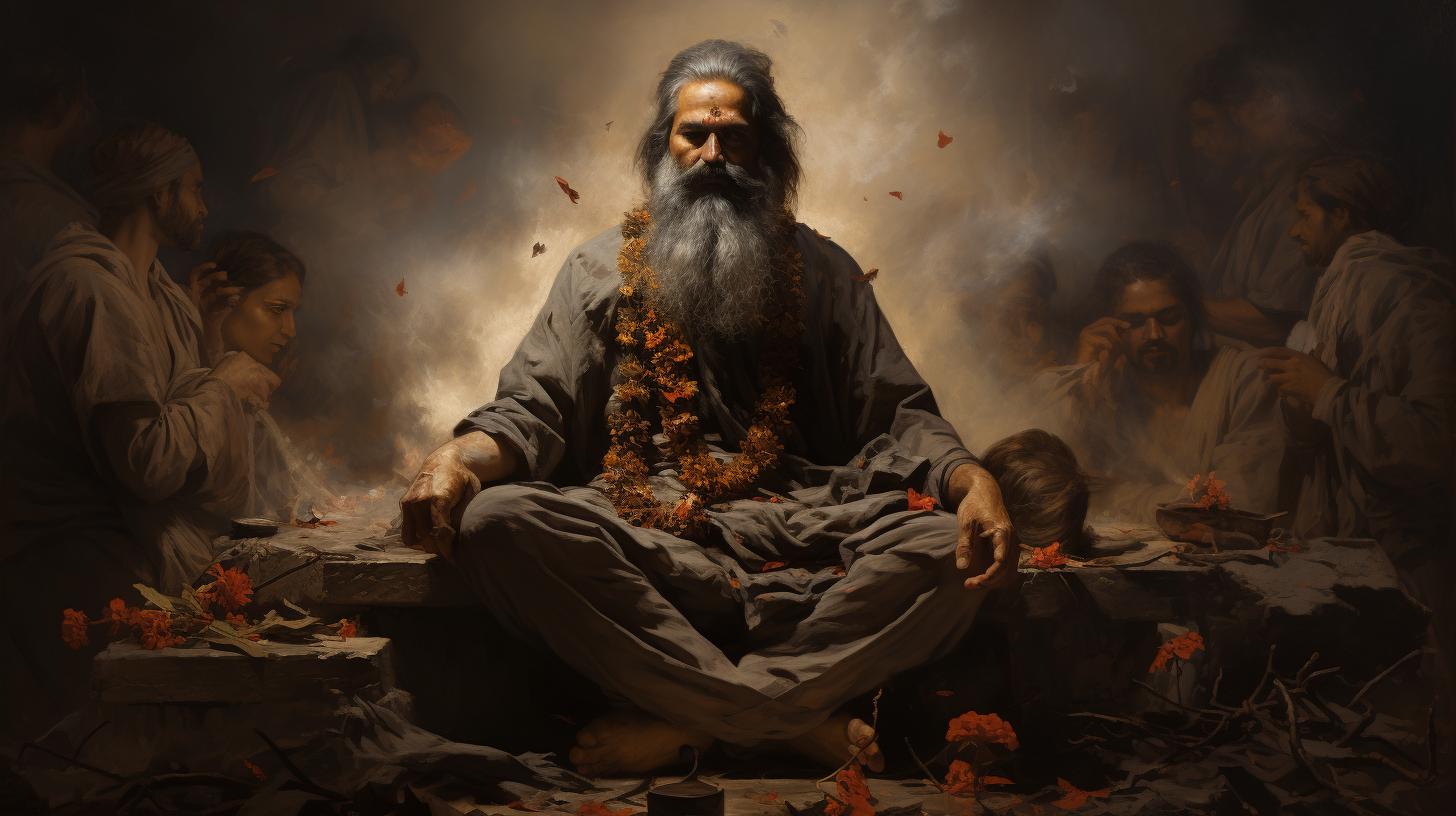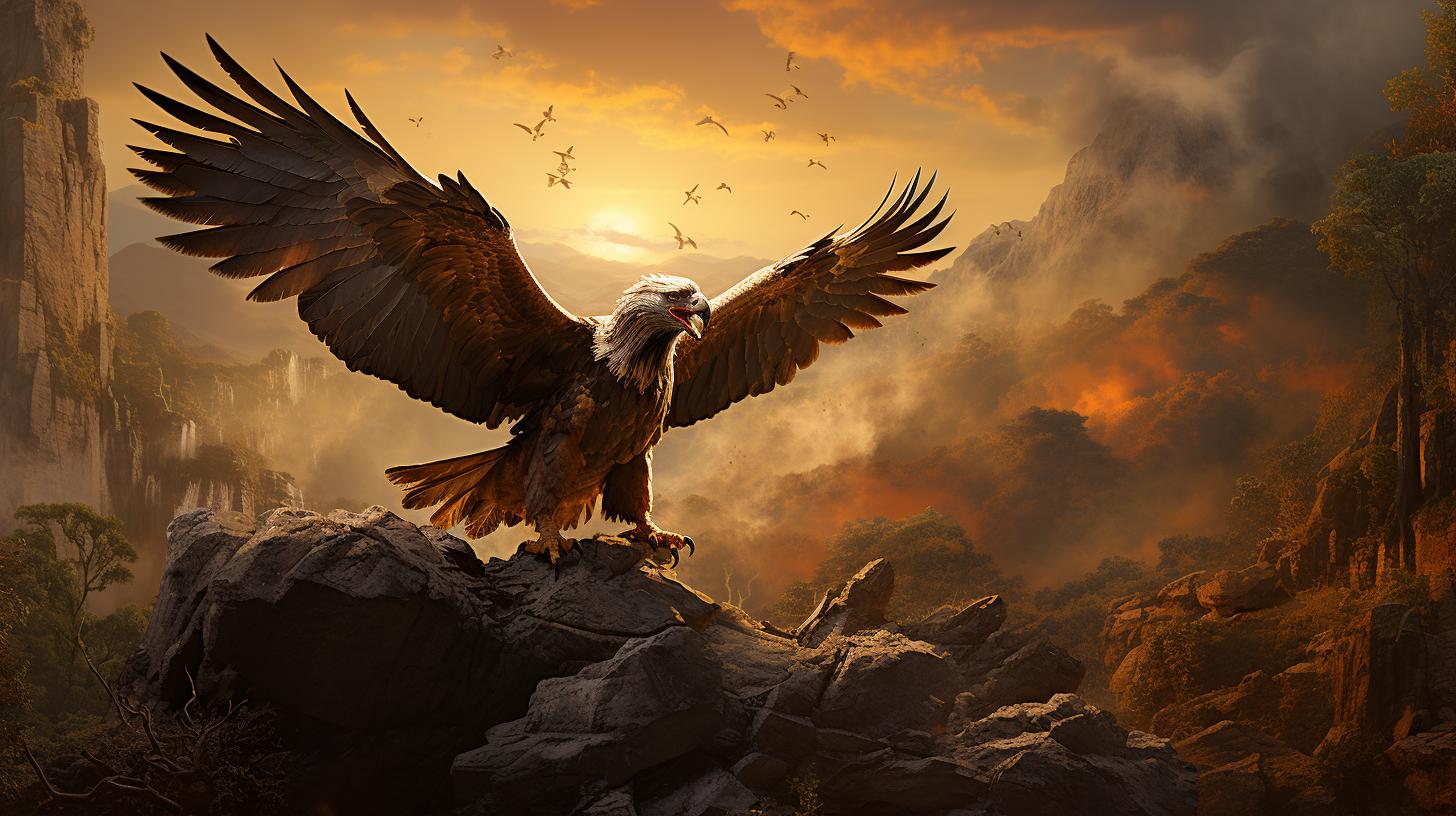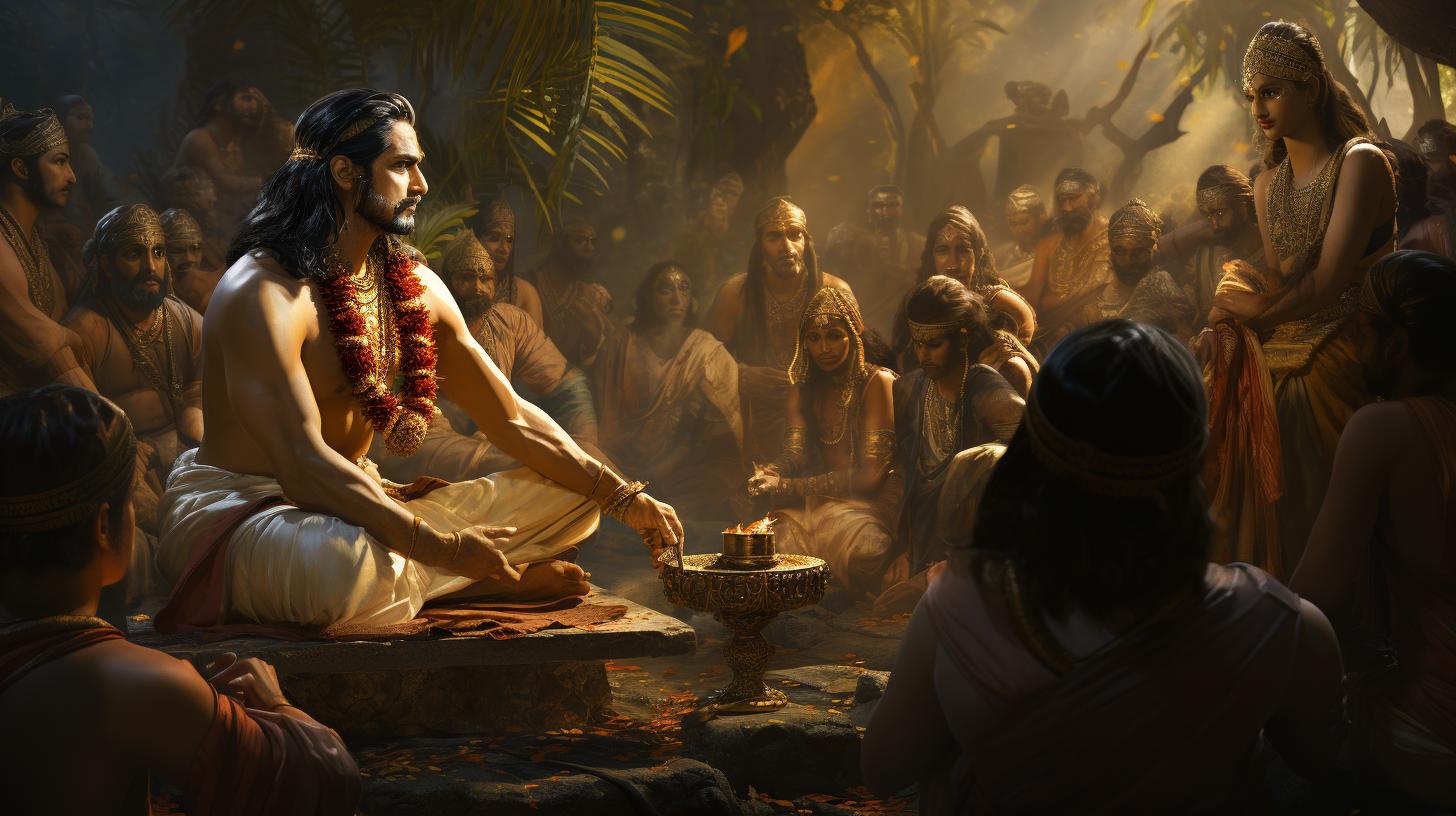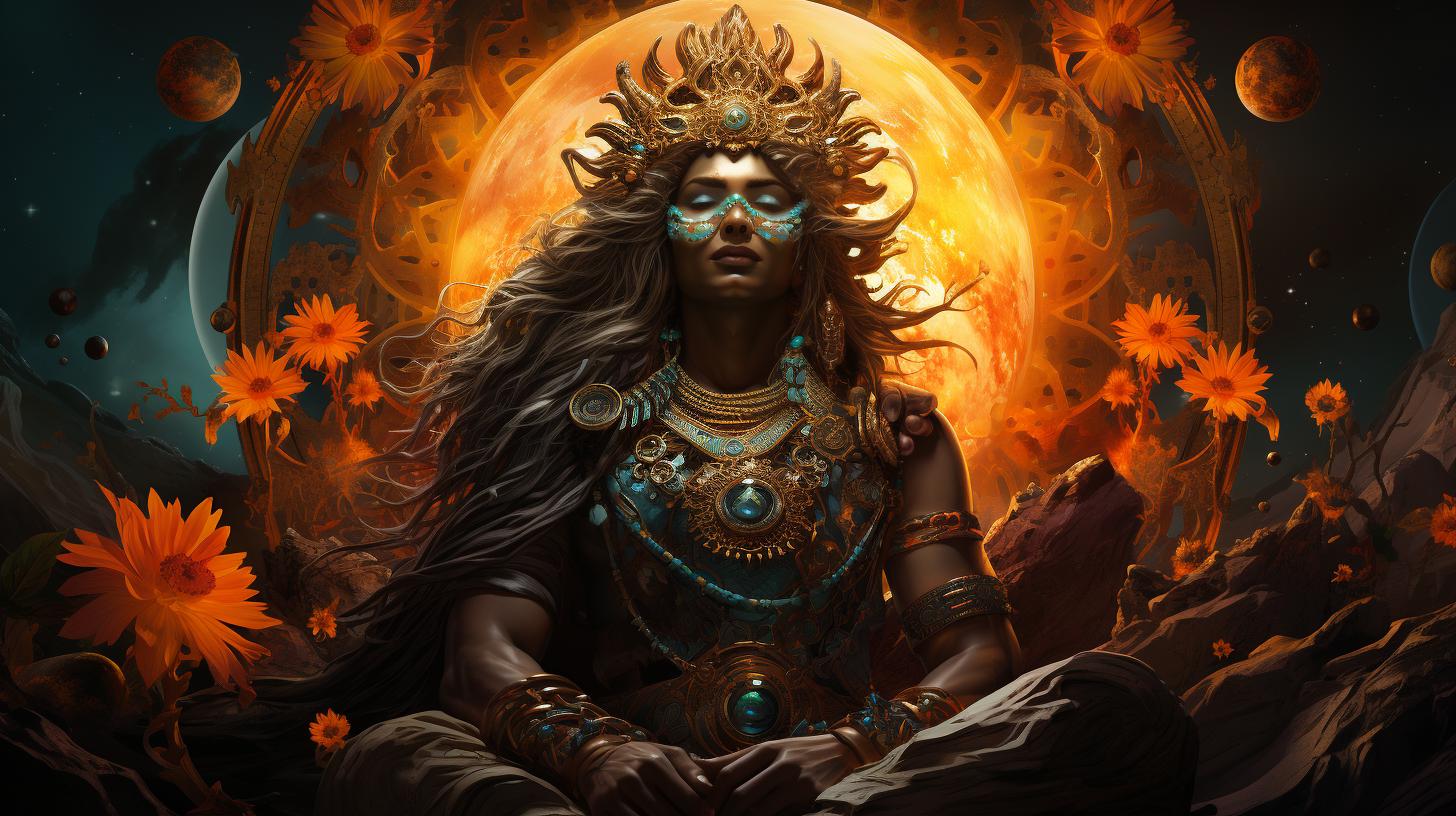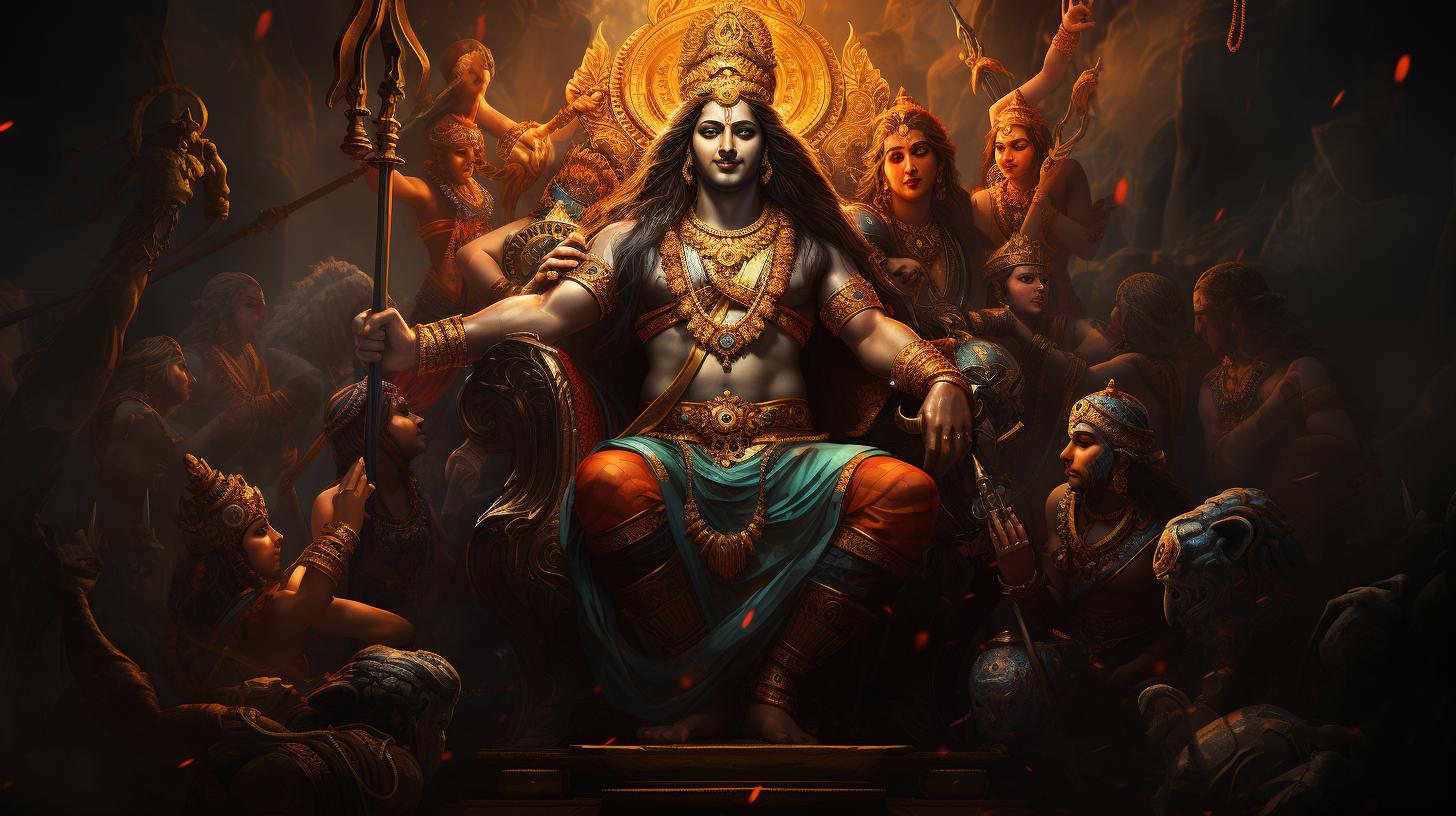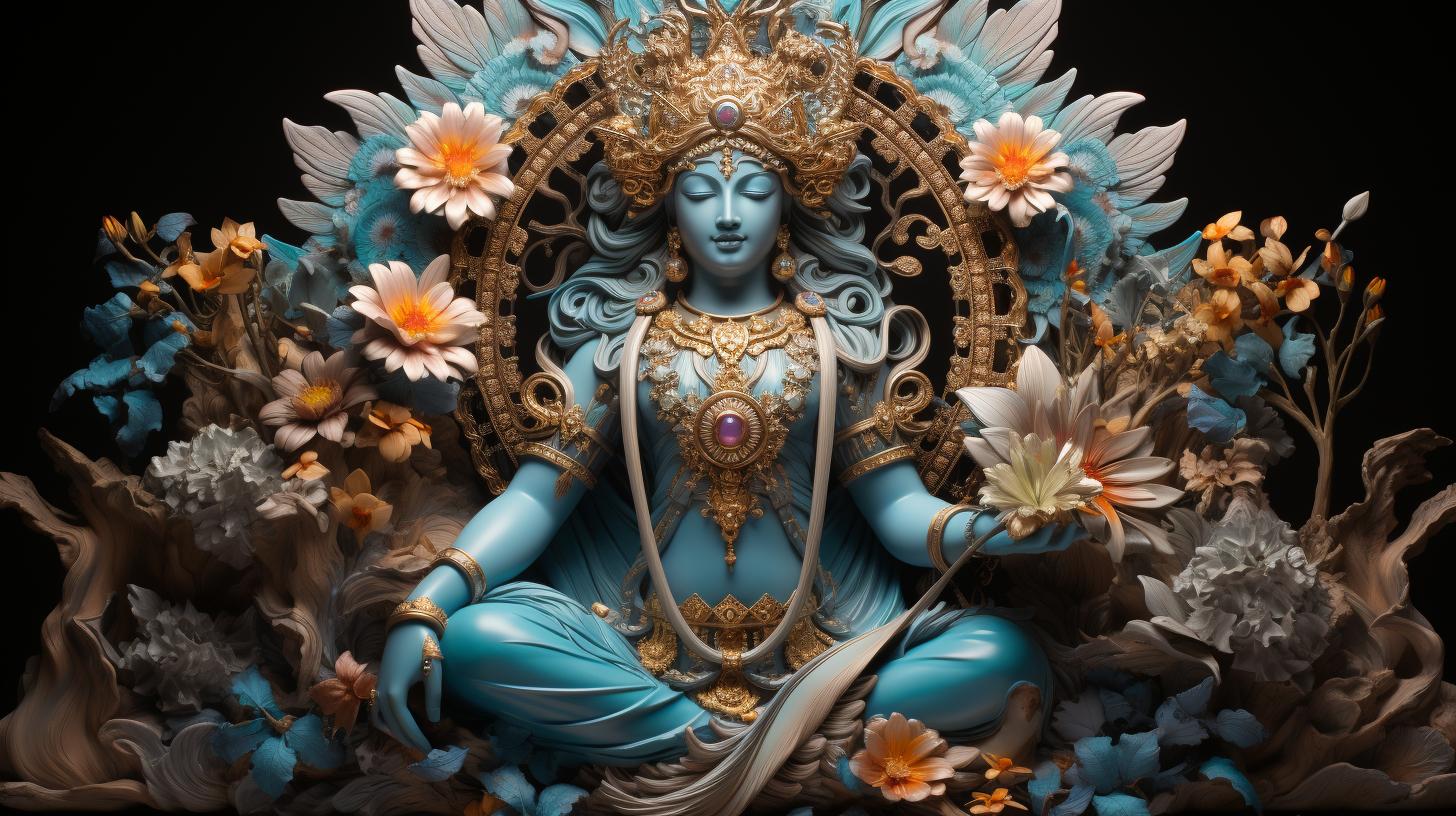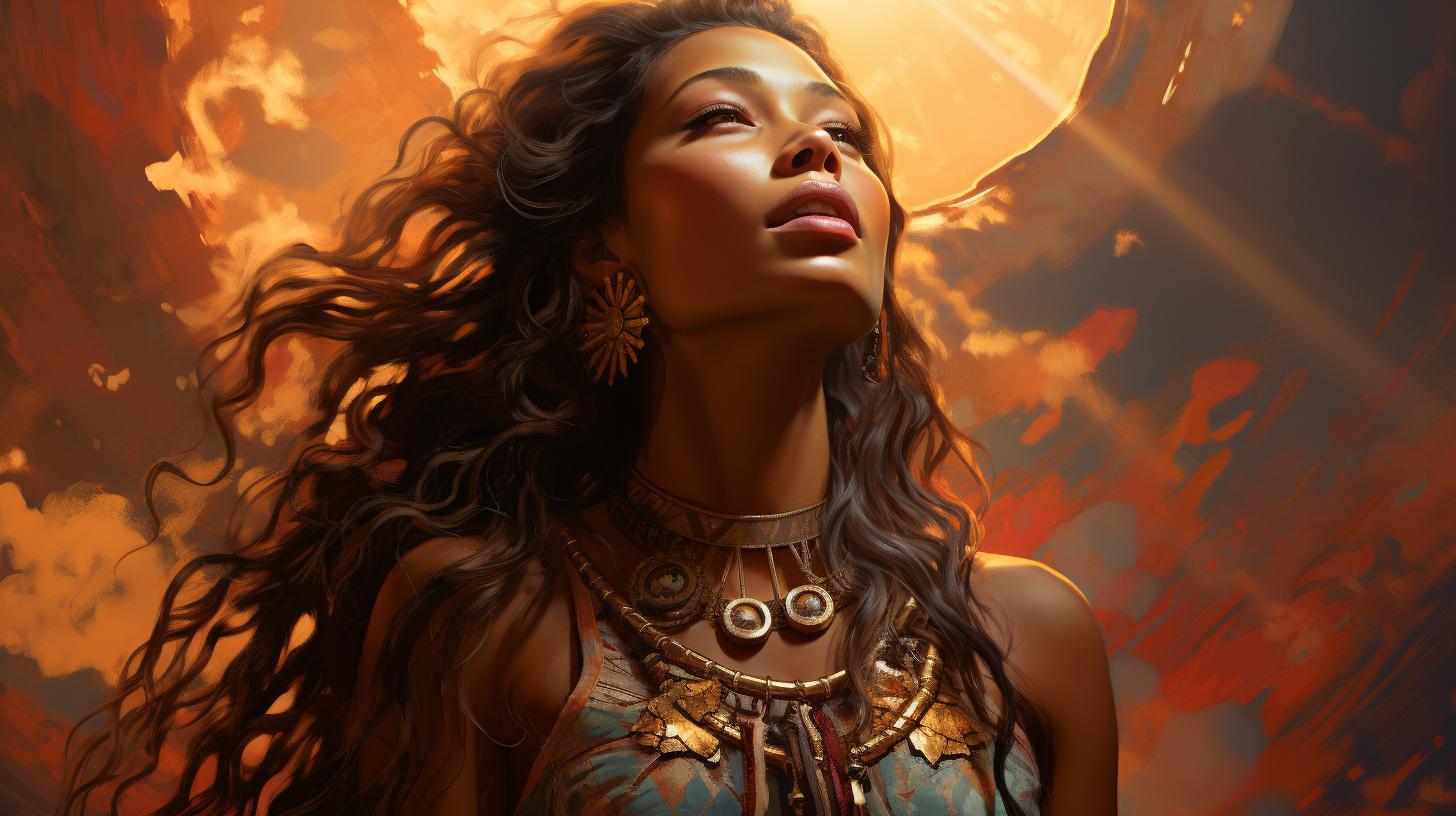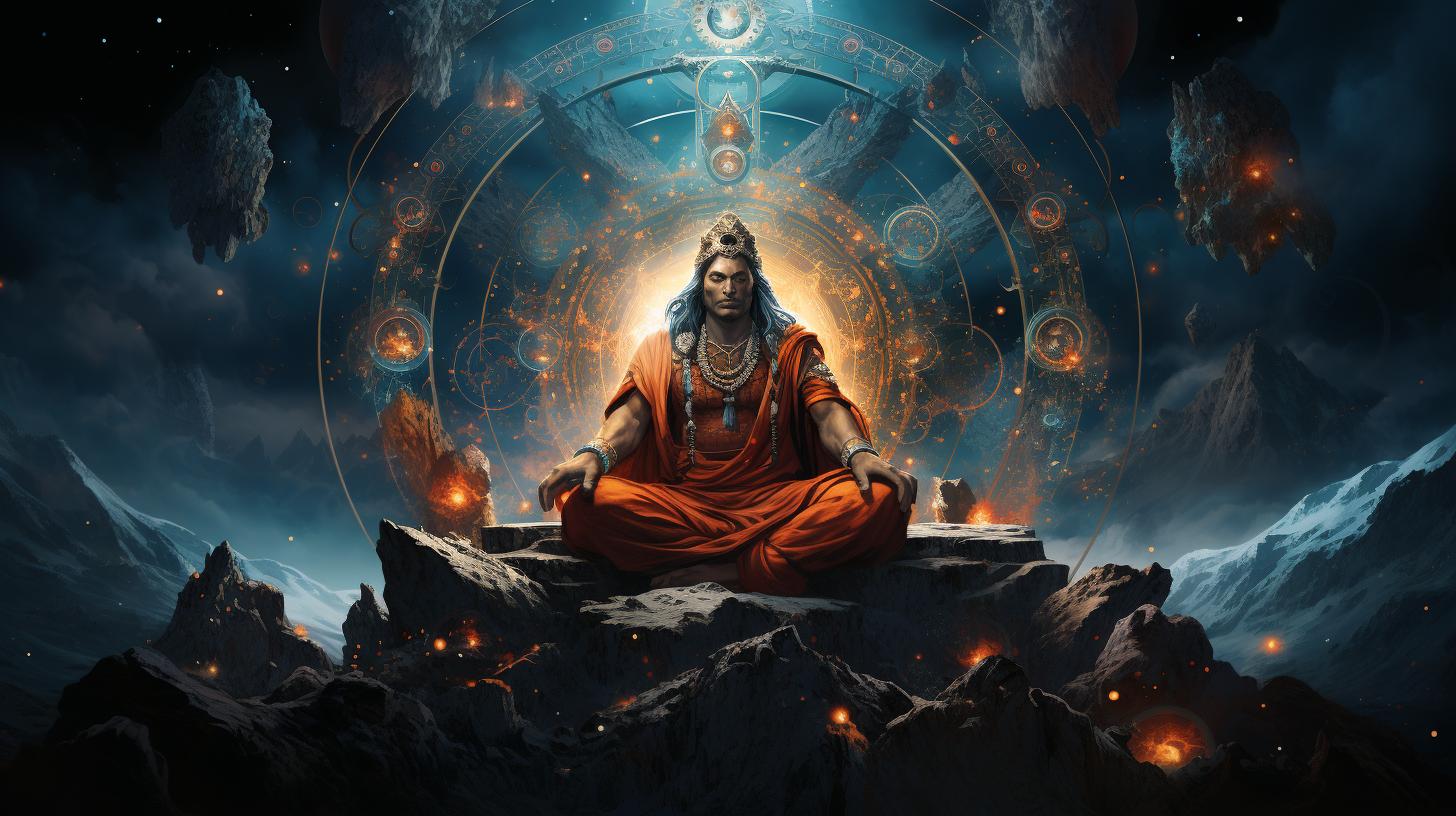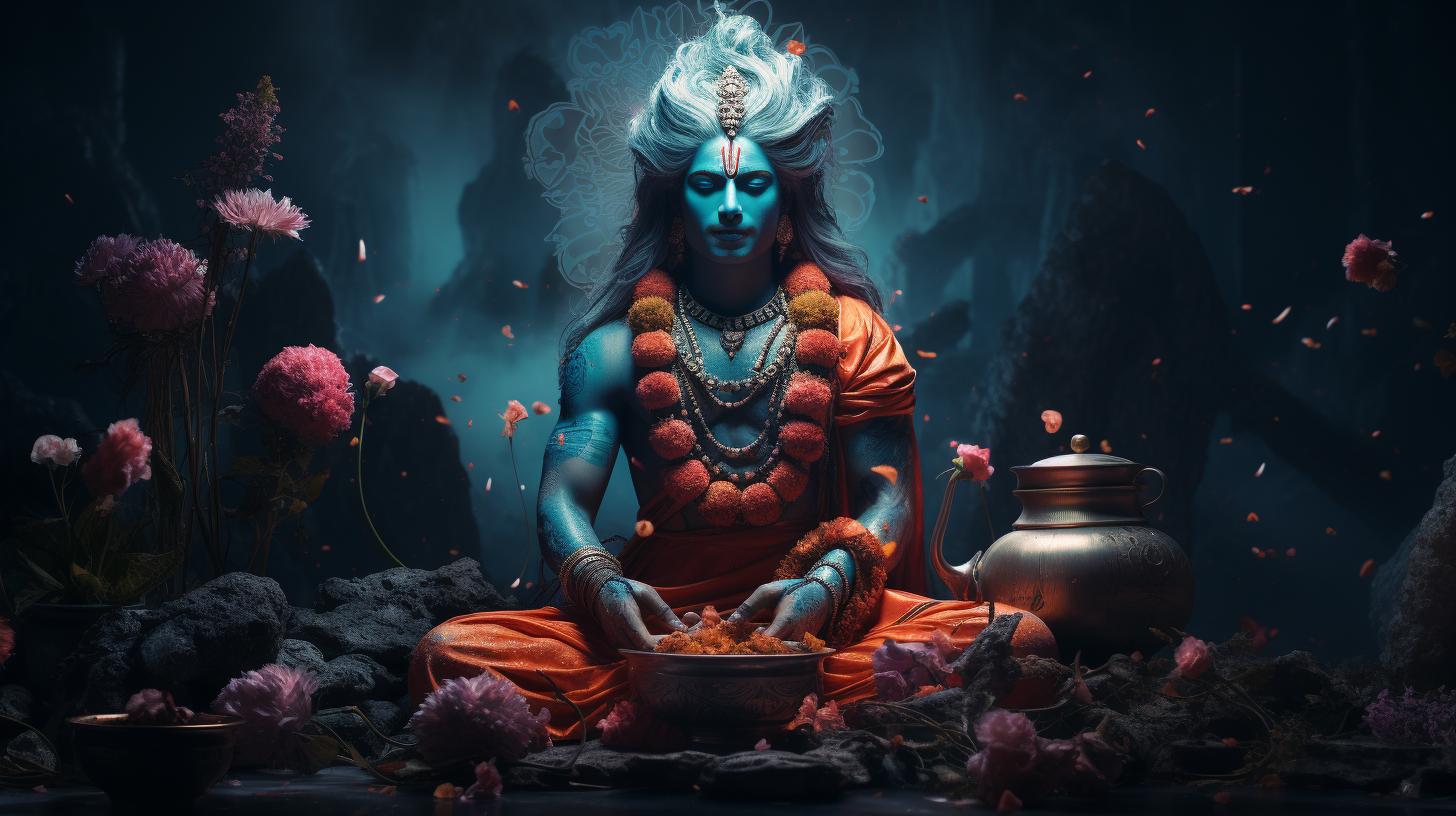Sage Dadhichi’s Sacrifice: Unveiling the Powerful Story of Selflessness
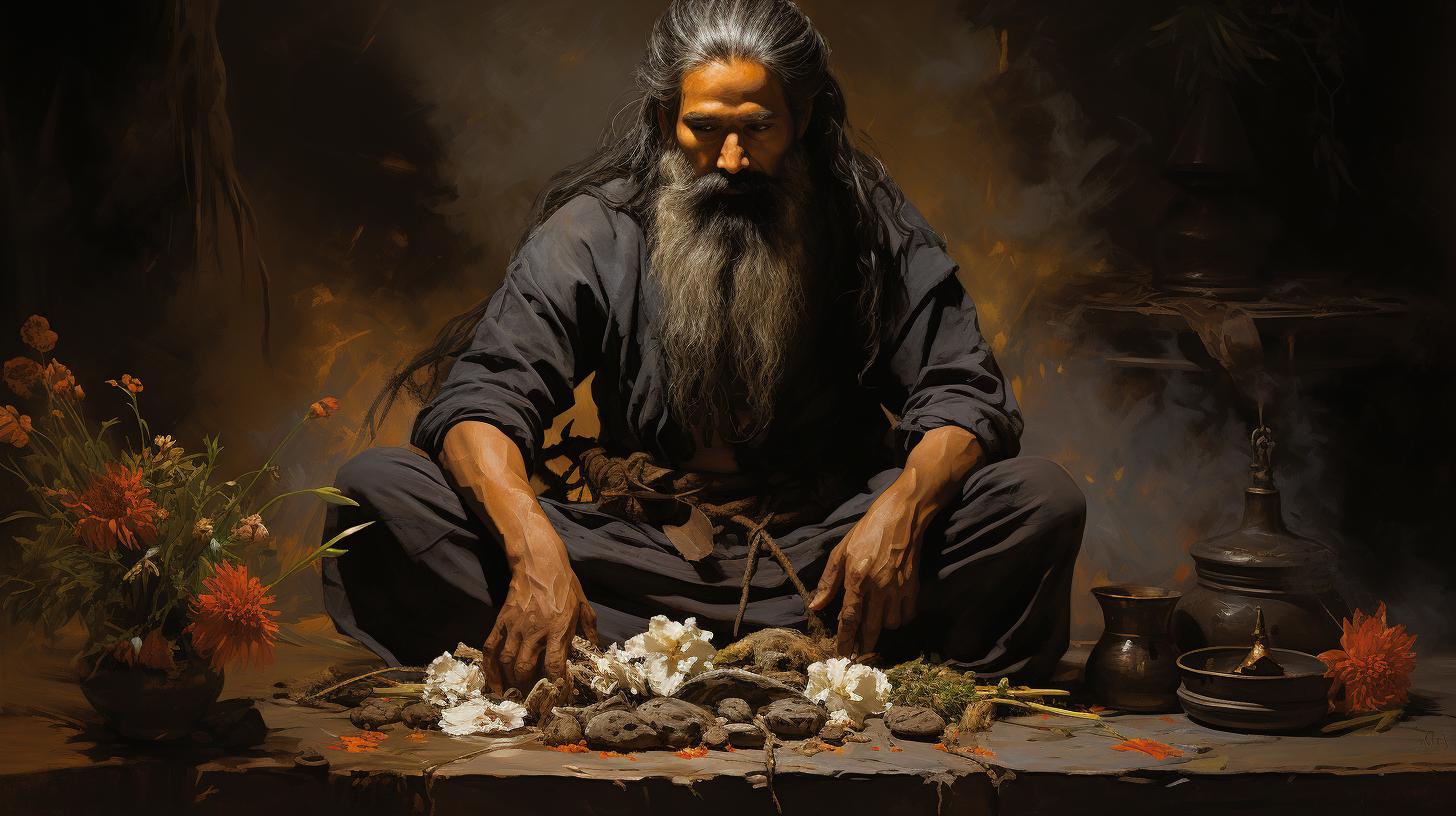
Dadhichi, a significant figure in Hinduism, is renowned for his selfless sacrifice to protect the devas. Associated with the ancient Vedic art of Brahmavidya, Dadhichi’s knowledge posed a threat to Indra, the king of the devas, and consequently drew his ire.
Dadhichi’s willingness to teach the Ashwini Kumars and his subsequent beheading and resurrection showcased his unwavering dedication. Furthermore, his pivotal role in defeating the asura Vritra through the weapon crafted from his own bones exemplified his devotion and ultimate sacrifice for the deities.
Dadhichi’s Background and Importance in Hinduism
Dadhichi holds significant reverence in Hinduism due to his crucial role in protecting the devas through his selfless acts of sacrifice. His lineage and association with Brahmavidya, the Vedic art believed to grant immortality, contribute to his esteemed position in Hindu mythology.
Dadhichi’s Lineage and Association with Brahmavidya
Dadhichi’s ancestry can be traced back to his father Atharvan, a revered rishi, and his mother Chitti. As a sage, Dadhichi possessed immense knowledge and was deeply associated with Brahmavidya, the sacred Vedic knowledge that bestowed immortality upon mortals.
This connection to Brahmavidya further elevated Dadhichi’s status and made him both respected and feared among the devas and gods.
Dadhichi’s Conflict with Indra and the Ashwini Kumars
Indra, the king of the devas, perceived Dadhichi’s vast knowledge as a threat and sought to eliminate him. Additionally, Indra held a strong opposition towards the Ashwini Kumars, who aspired to learn Brahmavidya from Dadhichi.
Indra made a vow to behead anyone who shared this sacred art with the twins.
Despite the risks, Dadhichi selflessly chose to teach the Ashwini Kumars the secrets of Brahmavidya. Aware of Indra’s intentions, the Ashwini Kumars decapitated Dadhichi and replaced his head with that of a horse.
When Indra ultimately beheaded the sage with the horse’s head, the Ashwini Kumars revived Dadhichi using the very knowledge he had imparted upon them. Thus, Dadhichi became known as Ashvashira, meaning “the one with the horse’s head.”
Dadhichi’s Sacrifice to Protect the Devas from Vritra
Dadhichi’s unwavering commitment to safeguarding the devas led to his courageous sacrifice in the face of the formidable asura, Vritra. This section delves into the key aspects surrounding Dadhichi’s selfless act and the subsequent events that unfolded.
Indra’s Expulsion from Devaloka and Seek for Vishnu’s Help
Indra, having been banished from Devaloka by Vritra, sought assistance from the divine trinity of Shiva, Brahma, and Vishnu. It was Vishnu who revealed to Indra that the bones of the great sage Dadhichi held the power to defeat Vritra effectively.
Dadhichi’s Agreement to Help Defeat Vritra
The devas approached Dadhichi, beseeching him to join their cause and lend his unparalleled strength against Vritra. Recognizing the gravity of the situation, Dadhichi willingly accepted their plea, prepared to make the ultimate sacrifice for the greater good.
Dadhichi’s Request for Pilgrimage and Indra’s Arrangement
Before offering his life, Dadhichi expressed his desire to undertake a sacred pilgrimage across all the revered rivers. Indra, understanding the significance of this spiritual journey, gathered the waters of these holy rivers in Naimisharanya, enabling Dadhichi to fulfill his wish without delay.
Dadhichi’s Ultimate Sacrifice and the Creation of Vajrayudha
With his pilgrimage complete, Dadhichi centered himself through yogic practice and relinquished his mortal existence. To defeat Vritra, the devas harnessed the power within Dadhichi’s spinal column, creating the invincible weapon known as Vajrayudha, which ultimately led them to triumph over their formidable foe.
Dadhichi’s Role as Guardian and Provider of Weapons
Dadhichi played a crucial role in safeguarding the devas’ weapons, demonstrating his unwavering dedication and selflessness. Let’s delve into the different aspects of his role in this significant undertaking.
Dadhichi’s Duty to Safeguard the Devas’ Weapons
As the entrusted guardian, Dadhichi had the solemn duty of protecting the weapons of the devas.
These divine weapons held immense power and were essential in defending against the forces of evil. Dadhichi understood the importance of keeping these weapons secure and ensuring that they remained solely in the hands of the devas.
Dadhichi’s Selfless Act of Dissolving the Weapons
In an act of extraordinary sacrifice, Dadhichi made a decision that exemplifies his selflessness. When it became apparent that the devas had abandoned their weapons and left them unclaimed, Dadhichi took it upon himself to dissolve the weapons in sacred water.
By doing so, he eliminated any potential for misuse or unauthorized access to these potent tools of protection.
By dissolving the weapons, Dadhichi demonstrated his unwavering commitment to the greater good, prioritizing the well-being and safety of the devas over any personal gain or desire for power.
His act serves as a timeless reminder of the importance of selflessness and sacrifice in the pursuit of a higher purpose.
The Devas’ Return and Dadhichi’s Voluntary Sacrifice for Brahma
When the devas eventually returned to reclaim their weapons, Dadhichi fearlessly disclosed what he had done.
Recognizing the gravity of the situation, Dadhichi willingly offered his own life so that Brahma, the creator deity, could fashion new weapons for the devas from his very bones.
This ultimate sacrifice showcases Dadhichi’s unwavering dedication to the devas’ cause and his willingness to go to great lengths for their protection.
His selflessness and readiness to give up his own life underscore the profound depths of his commitment and devotion.
Through Dadhichi’s role as the guardian and provider of weapons, we witness the epitome of selflessness and sacrifice.
His actions serve as an enduring example of unwavering dedication to a greater cause and emphasize the essence of noble virtues within Hindu mythology.
- Continue to explore more fascinating aspects of Hindu mythology and sacrificial legends in our Categories section.
- Check out our related articles and discussions on Dadhichi’s sacrifice to deepen your understanding of this captivating tale of selflessness.
Dadhichi’s Devotion and Abandonment of Daksha’s Yagna
Dadhichi, known for his unwavering dedication, demonstrated his devotion once again when he recognized the exclusion of Lord Shiva from Daksha’s Yagna.
This realization prompted Dadhichi to make a significant decision and withdraw from the ritual. Let us delve deeper into this aspect of Dadhichi’s remarkable story.
Dadhichi’s Recognition of Shiva’s Exclusion and Withdrawal
In the midst of Daksha’s grand Yagna, Dadhichi, with his profound wisdom, discerned that Lord Shiva had not been invited to the sacred event.
Realizing the repercussions of this exclusion and the disrespect shown towards Lord Shiva, Dadhichi made the conscious choice to withdraw from the Yagna. This bold action showcased his unwavering commitment to righteousness and his refusal to participate in an event that disrespected a revered deity.
Dadhichi’s Contribution to Devi Hinglaj Mantra
As a consequence of his withdrawal from Daksha’s Yagna, Dadhichi devoted himself to the discovery and utterance of the powerful Devi Hinglaj Mantra. This sacred mantra holds immense significance in Hinduism and is attributed to Dadhichi’s unwavering faith and spiritual prowess.
Dadhichi’s contribution to the Devi Hinglaj Mantra exemplifies his deep understanding of divine vibrations and his invaluable role in preserving the divine essence of Hindu rituals.
In conclusion, Dadhichi’s profound devotion and his recognition of Lord Shiva’s exclusion from Daksha’s Yagna highlight his unwavering commitment to righteous values.
His decision to withdraw from the Yagna and his subsequent contribution to the Devi Hinglaj Mantra demonstrate his dedication to upholding the sanctity of rituals and the worship of Hindu deities.
Dadhichi’s story serves as a reminder of the importance of remaining true to one’s principles and standing up for what is right, even in the face of societal pressures.
- Read more: Importance of Devi Hinglaj Mantra in Hindu Worship
- Explore: Hindu Rituals and Devotion to Deities
Literature and References Related to Dadhichi’s Sacrifice Story
Dadhichi’s sacrifice has been a fascinating subject in Hindu literature, inspiring various interpretations and analysis.
Scholars and devotees have delved into the profound meaning and symbolism behind Dadhichi’s selfless act. Through different texts and scriptures, they have explored the spiritual significance and moral lessons derived from this legendary tale.
Analysis and Interpretations of Dadhichi’s Sacrifice in Hindu Literature
In Hindu literature, scholars have uncovered multiple layers of symbolism in Dadhichi’s sacrifice. It is seen as a portrayal of the eternal battle between good and evil, selflessness and selfishness, and the triumph of righteousness over darkness.
Dadhichi’s unwavering dedication to protect the devas represents the ideal of sacrifice for a greater cause.
Furthermore, the act of beheading and resurrection symbolizes the transformation and transcendence of the mortal body.
Dadhichi’s willingness to give up his life showcases the ultimate devotion and surrender to dharma, the righteous path in Hinduism.
Notable References and Accounts of Dadhichi’s Sacrifice
References to Dadhichi’s sacrifice can be found in various Hindu scriptures and epics. The Mahabharata recounts the story of Dadhichi’s bones being used to create the weapon Vajrayudha, which leads to Vritra’s defeat.
The Puranas also mention Dadhichi’s sacrifice and highlight its significance in the mythology of Hindu gods and goddesses. Other ancient texts and treatises, such as the Atharvaveda and Brahmavidya Upanishad, discuss the profound implications of Dadhichi’s sacrifice and its moral teachings.
Moreover, folklore and oral traditions have preserved the story of Dadhichi’s sacrifice, ensuring its continued significance in Hindu mythology.
- References in Hindu scriptures like Mahabharata, Puranas, Atharvaveda, and Brahmavidya Upanishad
- Folklore and oral traditions preserving the story
These references and accounts serve as valuable sources for scholars, researchers, and enthusiasts seeking to explore and understand the profound implications of Dadhichi’s sacrifice.

